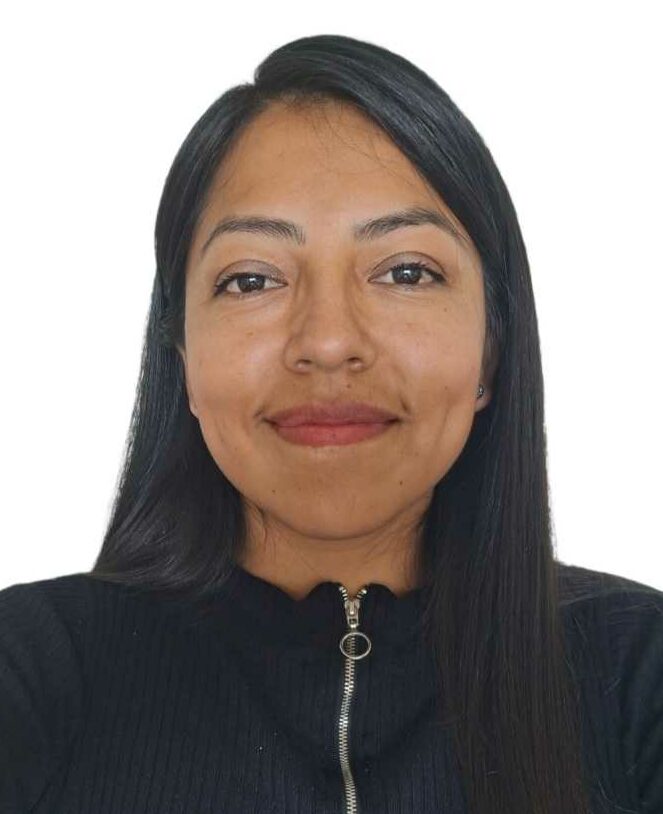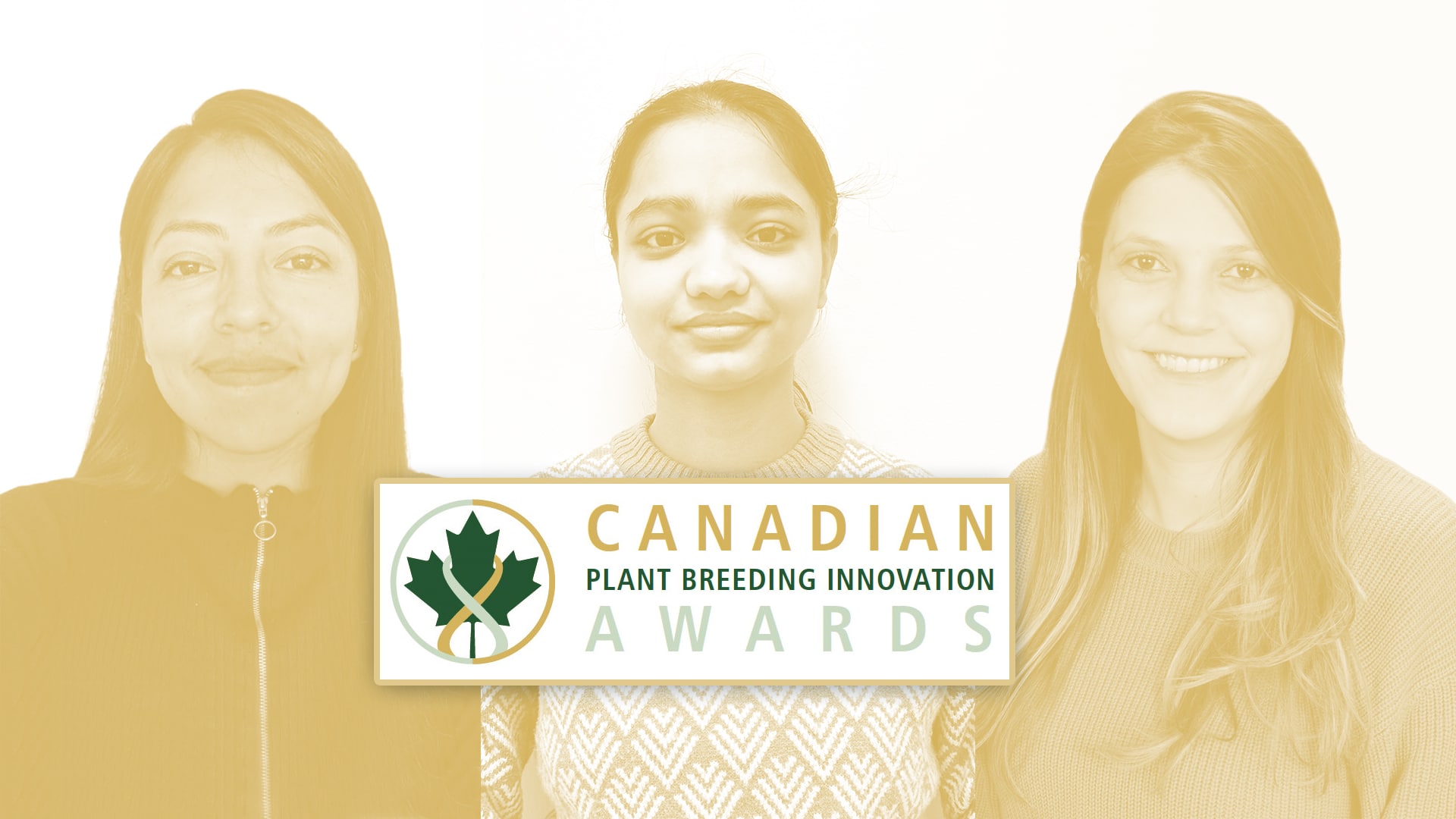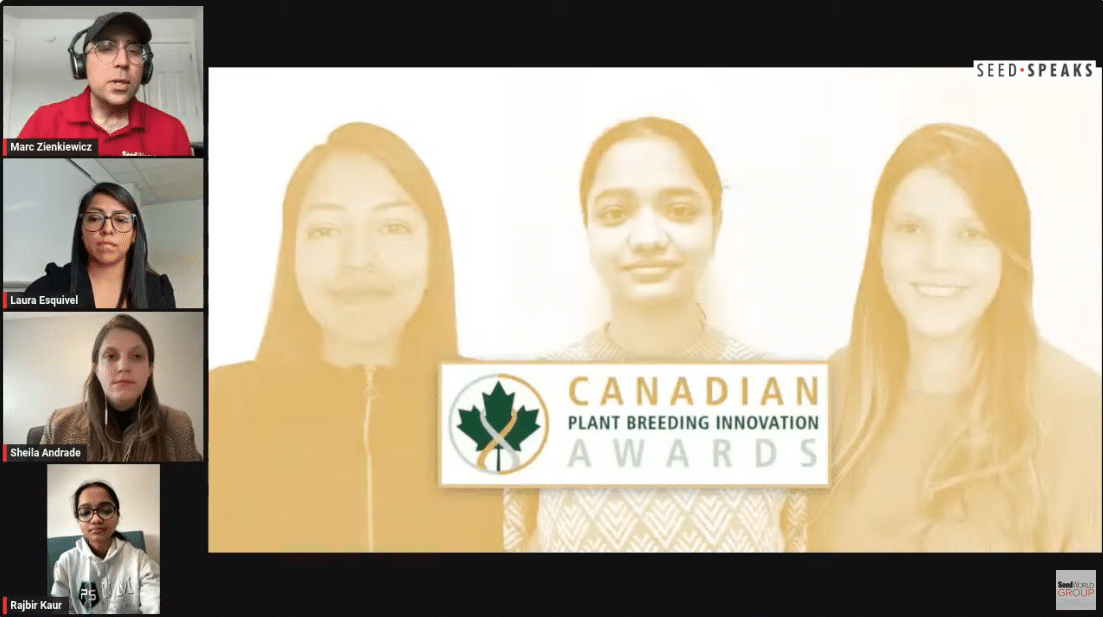With the common goals of recognizing achievement and innovation in plant breeding and shining a spotlight on the contributions made by plant breeders in Canada, the Canadian Plant Breeding Innovation (CPBI) Awards program is celebrating its fifth year.
The CPBI Awards — which were formed in 2020 when the Seed of the Year and Canadian Plant Breeding and Genetics Awards came together under one umbrella — are an opportunity to recognize plant breeders at various stages in their careers.
The CPBI Innovation Scholarships (formerly Seed of the Year scholarships) recognize up-and-coming young plant breeders. The scholarships enjoy the support of 11 great sponsors this year (see below) with three $3,500 scholarships being handed out. The recipients are selected each year by the winner of our Plant Breeding & Genetics Award, who is David Lee for 2024. Our deserving recipients are as follows:

Laura Esquivel Garcia, McGill University
Pathogen Puzzle: Sequencing Sclerotinia to Help Breeders
Her interest in agriculture stems from her upbringing in a small town in the countryside of Mexico, where her father farmed. This childhood experience sparked her passion for plants, leading her to pursue an undergraduate degree in the field. Her introduction to genetics occurred during a plant breeding course, where she became involved in a research project focused on developing frost-resistant sorghum varieties. Currently pursuing a master’s degree, she’s working on a project within the Canadian Sclerotinia Initiative, studying a pathogen that affects multiple crops. The project involves genetic diversity studies, with a focus on sequencing the pathogen’s genome. The goal is to gather valuable genomic information for incorporation into breeding efforts.

Rajbir Kaur, University of Manitoba
Solving the Problem of Pod Shatter in Canola
Born in Punjab, India, to a family of farmers, Rajbir was inspired by the challenges faced by farmers. Witnessing the impact of climate change, diseases, and pests on staple crops like wheat and rice, and the economic losses incurred, she was motivated to pursue a career in genetics. Currently, her research focuses on enhancing pod shatter resistance in canola using CRISPR-Cas9 gene editing technology. Pod shatter, a natural process in canola where seed pods split open during maturation, poses challenges during harvest due to uneven maturity. The goal of her master’s research is to develop shatter-resistant canola varieties through gene editing, allowing for uniform crop yield and quality. This is particularly important for breeding programs in Canada, as existing shatter-resistant varieties come with licensing restrictions and royalties.

Sheila Maria Pereira de Andrade, University of Saskatchewan
Pushing the Boundaries of Fusarium Damage Detection
Sheila’s journey in the field of plant pathology is rooted in a childhood spent on a farm. Beginning as an agronomist during her undergraduate studies, she delved into plant pathology. This initial interest in understanding and controlling diseases led her to pursue a master’s degree in Brazil, where she studied Fusarium head blight (FHB), a fungal disease affecting wheat. Currently, her PhD research involves utilizing X-ray and RGB images to detect fusarium-damaged kernels. Her goal is to assist breeders and enhance comprehension of the genetic foundations of FHB resistance. Her overarching goal is to contribute to the improvement of food safety, reduce agricultural losses, and ultimately enhance the quality of food products.
Thank-you to our generous sponsors for making these scholarships possible!














